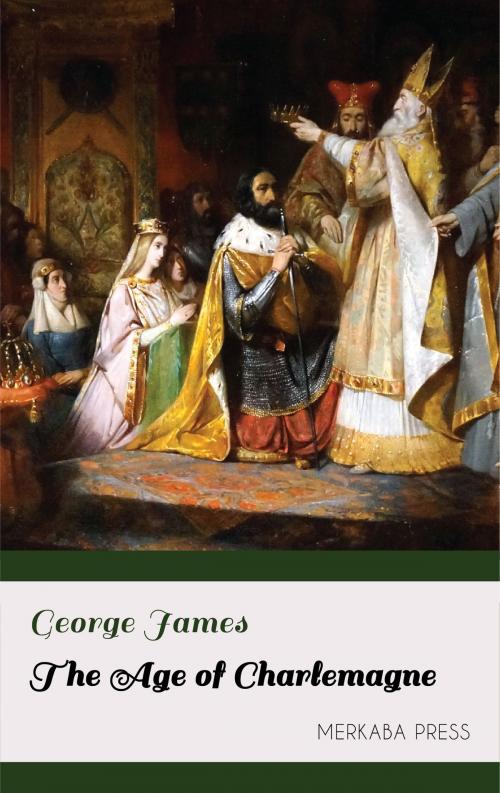| Author: | George James | ISBN: | 6610000013760 |
| Publisher: | PublishDrive | Publication: | April 27, 2017 |
| Imprint: | Merkaba Press | Language: | English |
| Author: | George James |
| ISBN: | 6610000013760 |
| Publisher: | PublishDrive |
| Publication: | April 27, 2017 |
| Imprint: | Merkaba Press |
| Language: | English |
One of the noblest possessions of the Roman Empire was the province of ancient Gaul. Much blood and treasure had been expended in its conquest; infinite wisdom, moderation, and vigour had been displayed in the means taken to attach it to the dominion of the Caesars; and the passing of several centuries had strongly cemented the union, and incorporated the conquered with their conquerors. Unwieldy bulk, enfeebling luxury, intestine divisions, and universal corruption soon, however, began to draw down the impending destruction upon the head of the imperial city. Attack after attack, invasion following invasion, left her still weaker under each succeeding monarch; province after province was wrested from her sway, till at length Odoacer, chief of the Scyrri, raised his standard in Italy; Romulus Augustulus yielded the empty symbols of an authority he did not possess; and the Roman Empire was no more.
Previous to this period, however, Gaul had been in fact, though not in name, separated from the falling monarchy, and portioned out among a thousand barbarous tribes. The country between the Rhone and the Alps had long been possessed by the Burgundians; the Goths held the whole territories situated between the Loire and the Pyrenees; Brittany, or Armorica, was divided between fresh colonies of Saxons and the remains of the aborigines; great part of the east of Belgium was in the hands of the Franks; and the Roman legions that were still left to maintain the almost nominal possession of Gaul, cooped up in a narrow space, and threatened daily by active and warlike enemies, thought of nothing but casting off the control of their enfeebled country, and finding strength in independence.
In the meantime the larger cities were filled with a mixed population, consisting partly of the Roman colonists, partly of the ancient Gauls, partly of their savage conquerors. Some few, indeed, either by accident or courageous resistance, had escaped the fury of the invaders and remained free, while all around them had been subdued; some had been sacked and left desolate; and some, having been ceded by the falling emperors themselves to the Goths, or to any other of the tribes in temporary alliance with Rome, had passed more mildly under the sway of the barbarians, and enjoyed as much protection as could be afforded in times so disastrous.
Such was the general aspect of the province a little previous to the final overthrow of the Roman Empire. But those were days of change, when nothing was fixed; and the nation which ruled today, tomorrow had passed away, and was unknown; and all that continued with unaltered force was ravage, disorder, and destruction...
One of the noblest possessions of the Roman Empire was the province of ancient Gaul. Much blood and treasure had been expended in its conquest; infinite wisdom, moderation, and vigour had been displayed in the means taken to attach it to the dominion of the Caesars; and the passing of several centuries had strongly cemented the union, and incorporated the conquered with their conquerors. Unwieldy bulk, enfeebling luxury, intestine divisions, and universal corruption soon, however, began to draw down the impending destruction upon the head of the imperial city. Attack after attack, invasion following invasion, left her still weaker under each succeeding monarch; province after province was wrested from her sway, till at length Odoacer, chief of the Scyrri, raised his standard in Italy; Romulus Augustulus yielded the empty symbols of an authority he did not possess; and the Roman Empire was no more.
Previous to this period, however, Gaul had been in fact, though not in name, separated from the falling monarchy, and portioned out among a thousand barbarous tribes. The country between the Rhone and the Alps had long been possessed by the Burgundians; the Goths held the whole territories situated between the Loire and the Pyrenees; Brittany, or Armorica, was divided between fresh colonies of Saxons and the remains of the aborigines; great part of the east of Belgium was in the hands of the Franks; and the Roman legions that were still left to maintain the almost nominal possession of Gaul, cooped up in a narrow space, and threatened daily by active and warlike enemies, thought of nothing but casting off the control of their enfeebled country, and finding strength in independence.
In the meantime the larger cities were filled with a mixed population, consisting partly of the Roman colonists, partly of the ancient Gauls, partly of their savage conquerors. Some few, indeed, either by accident or courageous resistance, had escaped the fury of the invaders and remained free, while all around them had been subdued; some had been sacked and left desolate; and some, having been ceded by the falling emperors themselves to the Goths, or to any other of the tribes in temporary alliance with Rome, had passed more mildly under the sway of the barbarians, and enjoyed as much protection as could be afforded in times so disastrous.
Such was the general aspect of the province a little previous to the final overthrow of the Roman Empire. But those were days of change, when nothing was fixed; and the nation which ruled today, tomorrow had passed away, and was unknown; and all that continued with unaltered force was ravage, disorder, and destruction...















